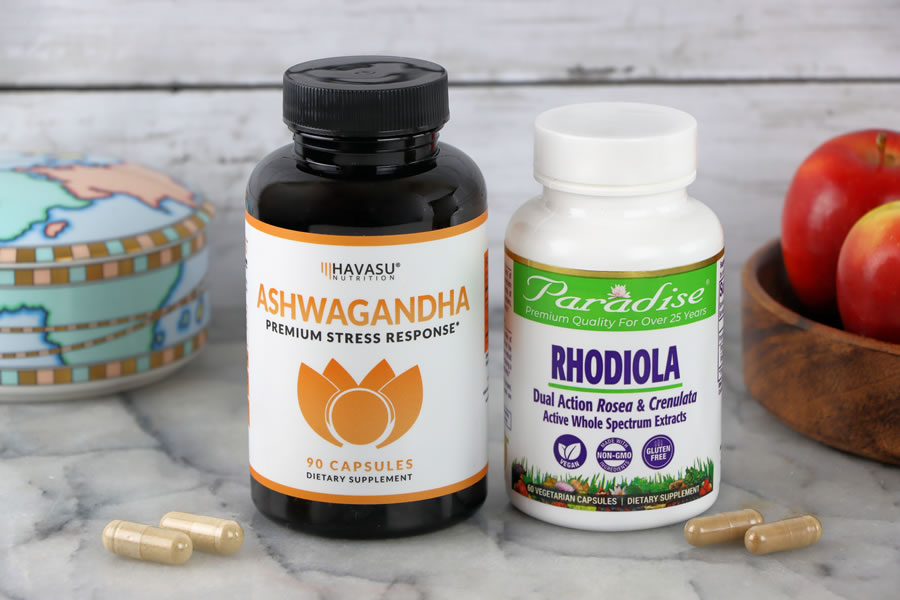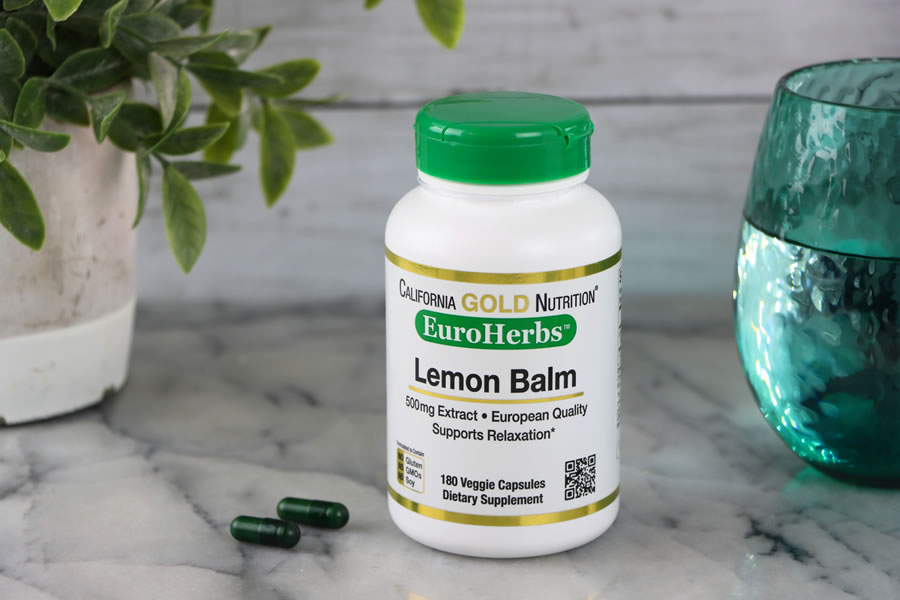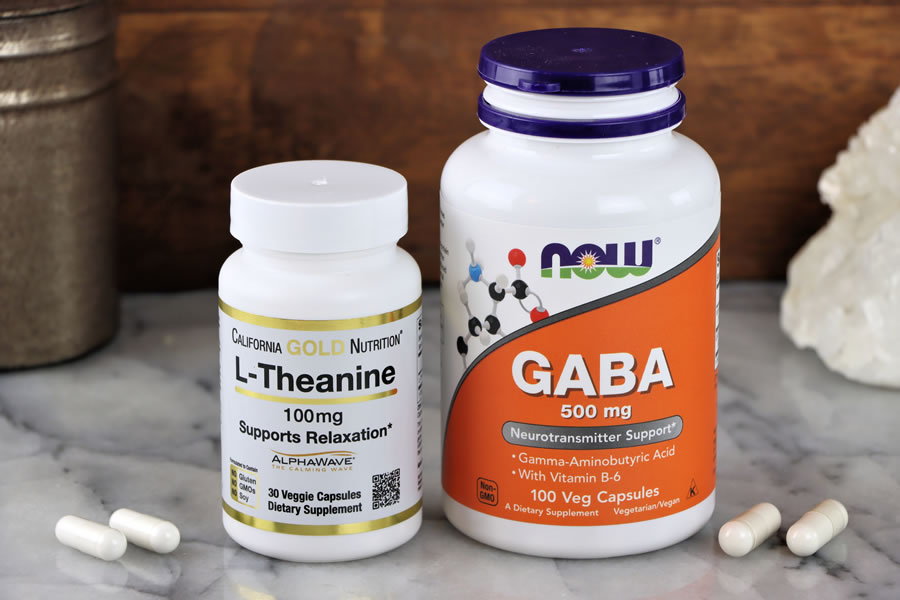25 Easy Ways to Reduce Stress and Anxiety
* We partnered with iherb.com to bring you this post. All the information and opinions presented here are our own. With amazing prices and fast shipping across the globe visit iherb.com for all your health, wellness, and grocery needs!
Believed to be the root cause of 90% of all illnesses, stress is defined as your body’’s response to any type of change that causes physical, emotional, or psychological strain.
It can make our lives miserable, causing symptoms like anxiety, depression, lack of sleep, hormone imbalance, lowered immunity and weight gain, all which in turn can also cause even more stress on our mind and body.
According to the Mayo Clinic, stress that goes unchecked over time can eventually lead to even more serious health issues, including high blood pressure, heart disease, obesity, and diabetes. Stress has even been linked to other unpleasant physical symptoms like depression, fatigue, irritability, ulcers, allergies, migraine headaches, and can make preexisting conditions even worse.
Stress is a part of life but it can be managed. If you’re feeling stressed and don’t know what to do, you’ve come to the right place! We’ve partnered with favorite health and wellness shop iHerb to bring you 23 of the best tips that can help you relieve stress and all its nasty effects.
Try some of these suggestions and you’ll be feeling calm, relaxed and collected in no time.

 1. Try Deep Breathing
1. Try Deep Breathing
Taking deep breaths can be really effective at reducing stress and anxiety and promoting relaxation on a physical and emotional level too. When you start to breathe deeply, chemical signals are sent to your brain. The brain then sends out the equivalent of a social media post to the rest of your body telling it to relax, lowering your heart rate, blood pressure, and promoting overall relaxation.
There are many deep breathing techniques and exercises you can learn but an easy one to try time you’re feeling frazzled is called Belly Breathing. To begin, sit or lay down in a comfortable position. Place one hand on your lower abdomen and the other on your chest. Breathe deeply in through your nose pushing the air into your diaphragm feeling your hand on your belly rise as your chest remains still. Then breathe out slowly through your mouth. Repeat 5 to 10 more times. Take a moment to notice how you feel when you’re done.
2. Lower Your Caffeine Intake
It’s a common go-to to reach for a cup of java whenever you’re feeling stressed and tired. A morning cup of coffee is okay, but if you find you needing caffeine to get you through the day you may need to cut down. Too much caffeine can cause your stress hormone known as cortisol to increase, which can make you end up feeling tired, wired and worse than before that cup of Joe. Caffeine can also dehydrate you causing your body even greater stress. And as it’s hidden in sodas, ice-teas, chocolate and energy drinks as well, getting more caffeine than we bargained for can be easier than you think. Try cutting back slowly over time to avoid withdrawal symptoms like headache and fatigue.
See our list of the best 7 Energizing Alternatives To Coffee
3. Clear out the Clutter
If your home or workspace is cluttered there’s no doubt it can cause stress and having a clean environment can help keep you stay relaxed. Becoming clutter free won’t happen overnight, and can take some work to maintain, but with all that junk out of your space you’re guaranteed to feel so much better. If you feel too overwhelmed and don’t know where to start, choose one room in your house to work on at a time. Divide that room into sections and set a timer for 15 minutes cleaning up as much clutter as you can within that time block. You can keep going or take a break and continue later. Throw on some tunes and you’ll find the time will fly by. The cleaner your space is, the better you’ll feel and the more motivated you’ll be to get clean and organized.
4. Aromatherapy Can Help
Aromatherapy is one of the easiest and most pleasurable ways to provide stress relief, reduce anxiety, and even help manage pain. And it’s efficacy is backed by science. So how does aromatherapy work? When we breathe in the aroma of an essential oil (a concentrated extraction of plant compounds), the molecules activate the receptors in our nasal cavity to send messages to the brain, which in turn may release “feel-good” chemicals like serotonin, which can ease feelings of stress. Depending on the properties of the essential oil used, they can make you feel calm and relaxed, but also happy, focused or energized. [1]
Using calming essential oils like Lavender, Frankincense, Lemon, Eucalyptus, Bergamot and Lemongrass when you’re stressed out, can provide you with a true sense of relaxation as well as surround you in aromas that smell amazing. And there’s many ways to use essential oils. Try adding some to an essential oil diffuser or your body moisturizer next time you’re feeling out of sorts. The simplest way is to just open a bottle of your favorite essential oil and inhale. Extremely potent, be sure to never apply essential oils to the skin without being diluted in a carrier oil like almond or coconut.
 5. Cuddle Up With a Pet
5. Cuddle Up With a Pet
Having a pet is a big responsibility, but it can be really rewarding too. Many studies have shown that the companionship of a pet like a dog can soothe and calm you, while reducing cortisol, as well as feelings of stress and anxiousness. In one study, it showed that students who spent only 10 minutes with a dog led to a significant decrease in stress. [2] If a cat or dog doesn’t fit into your lifestyle, having fish or other pets can be just as beneficial.
6. Surround Yourself With Plants
The popularity of caring for houseplants has exploded in recent years, with everything from plant-centric instagram accounts to websites willing to ship you the exotic foliage of your dreams. And the mental health and stress reducing benefits of this trend are nothing but positive. Plants not only purify the air and can remove airborne toxins, making our indoor environments healther, but studies have shown that they can also have a calming effect on our mood, while lowering stress levels and blood pressure. Plants are also a perfect alternative for those who may want the fulfillment of caring for something, but can’t fit a pet into their lifestyle. A great way to help us connect with nature, once you have plants in your space you won’t want to go without. While some plants can be finicky, there are plenty of indoor varieties that require little care like pothos, dracaena, and spider plants, but still provide stress-relieving benefits.
 7. Cultivate a Meditation Habit
7. Cultivate a Meditation Habit
A practice which began in India over 2000 years ago, meditation is a scientifically proven method to reduce stress, and will not only make you feel more relaxed over time, but it has also been credited with lowering blood pressure, easing anxiety, increasing attention span, improving sleep, boosting immunity, and self-esteem. There’s no right or wrong way to meditate and it only takes a few minutes each day to get the benefits. To start, begin by sitting in a comfortable chair free of distractions and set a timer for 5 or 10 minutes. Sit quietly and simply notice your thoughts passing in and out (without judgement) as you focus on your breath.It may be hard to sit still at first, but overtime you will be more relaxed as you meditate each day. There are many meditation apps available to download that will give you guidance, help you track your progress, and provide guided meditations with a variety of themes.
8. Go For a Walk
We often think that the more intense an exercise is, the more beneficial it is, but you can get amazing benefits for your body and mind from simply walking. Any exercise will help relieve your stress, but a 2008 study, centered around subjects with a sedentary lifestyle, found that participants who followed an exercise program walking, experienced a 20% boost in energy while their fatigue was reduced by a whopping 65%. Walking can also boost endorphins, which can help to reduce symptoms of stress hormones, trigger a positive feeling in the body, and help with mild depression. Try walking outside for a minimum of 20-30 minutes 5 times per week to alleviate stress and give your mind a positive boost.

 9. Yoga Can Help With Stress Too
9. Yoga Can Help With Stress Too
Yoga is another great form of low-impact exercise that promotes strength, balance, and flexibility while relieving tense muscles. It can also connect your breath with movement in a way that is incredibly calming. A meditative form of exercise, yoga has been shown in a number of studies as an effective tool to reduce stress and anxiety, improve mood, lessen symptoms of anxiety and depression and promote an overall sense of well-being.
If you’d like to give yoga a try, there are many beginner-friendly and free videos available on Youtube. Yoga With Adriene is one of my favorite YouTube yoga channels for some wonderful lighthearted yoga instruction with a sense of humor.
 10. Fight Stress With Adaptogenic Herbs
10. Fight Stress With Adaptogenic Herbs
Hormones can play a big role in how we experience stress. And if they’re imbalanced they can wreak havoc on our daily lives making us feel tired, overwhelmed, and can even cause us to gain weight. But there’s a variety of herbs, called adaptogens that have been proven in studies to help our bodies adapt to stress. [3,4] Not only can adaptogens help to balance out hormones to help you better handle stress, but they can give you a better sense of well-being, reduce fatigue, boost energy, improve focus, increase metabolism, boost the immune system, and improve sleep.
Some of the most popular adaptogens are ashwagandha and rhodiola. A study found that “eight weeks supplementation of aqueous Ashwagandha root extract was associated with a significant reduction of stress levels in individuals and improved the overall quality of life.” [4] A plant from Siberia, and also referred to as golden root or arctic root, Rhodiola was found in one study to be an effective tool against chronic stress and burnout as it dramatically improved symptoms of stress and boosted immunity after only three days. [5]
Recommended: Havasu Nutrition, Ashwagandha, Premium Stress Response
Recommended: Paradise Herbs, Dual Action Rhodiola
11. Listen to Music
The healing power of music has been well studied and it’s an effective way to help calm the stress. Although it’s been proven that instrumental styles of music such as classical or New-Age styles, can lower heart rate, blood pressure and stress hormones, whatever tunes you enjoy can also provide a calming benefit. [6] Nature sounds are stress relieving too.
Try putting a few themed playlists together of your favorite songs to evoke how you want to feel at any given time, whether you’re looking to be calm or focused, energized, motivated, or even high-spirited. It’s a great way to extinguish feelings of stress but also to give yourself a general sense of well-being. Music can soothe you whenever you’re driving, exercising, meditating, showering, cooking, doing chores or finances, studying or simply getting ready for the day.
12. Take a Break From Social Media and the News
It’s no secret that the news and media gets more engagement and reaction from negative stories than from the positive. That means it’s mostly gloom and doom all day long. Arguments and controversial subjects brought up on social media can also be unnecessarily stressful and take a toll on our mental health. Try taking a break from both a few days to see how you feel. If you feel lighter and more stress free, it might be best to give yourself time to reset.
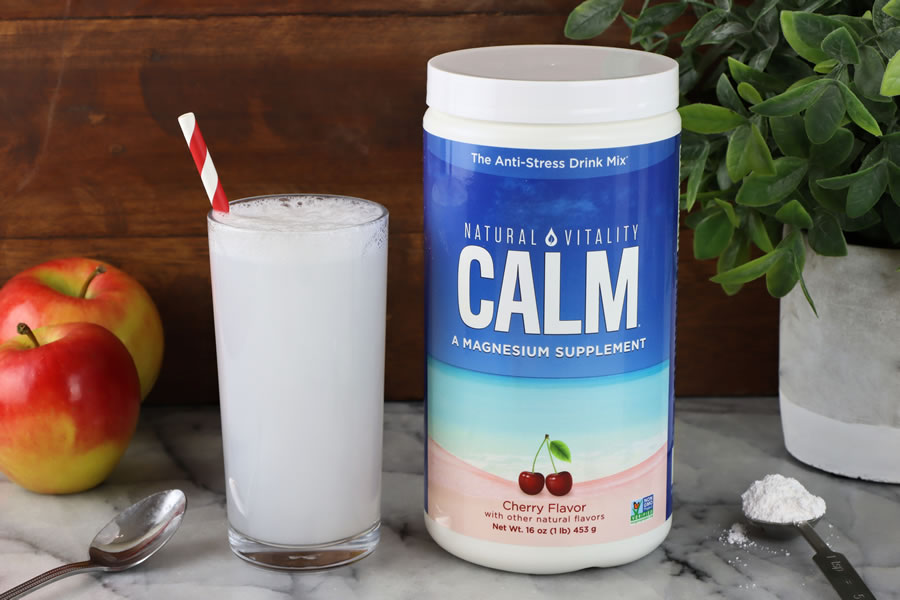
 13. Get Calm With Magnesium
13. Get Calm With Magnesium
Involved in over 300 enzymatic reactions in our body, magnesium is important for everything from energy metabolism, to regulating blood sugar levels and blood pressure, maintaining muscle and nerve function, keeping the heart rhythm steady, and so much more. But when it comes to stress, magnesium also has the power to keep us calm, while reducing anxiety, restlessness and depression [7].
According to a USDA Agricultural Research Report, 7 out of 10 Americans are not getting enough magnesium through diet alone. One study found that magnesium greatly improved sleep quality when taken before bed [8]. If you always seem to be tossing and turning you just might be magnesium deficient.
To make sure you’re getting enough magnesium, adding a magnesium supplement into your routine is your best bet. One of our favorite stress-busting magnesium supplements is Natural Calm. Stirred into water, this tasty fizzy magnesium drink comes in yummy flavors like cherry, orange, and raspberry lemon and will give you all the magnesium you need to stay stress-free.
Recommended Product: Natural Vitality, Natural Calm, The Anti-Stress Drink, Cherry Flavor
14. Reduce Sugar and Don’t Binge on Sweets
When you get stressed it’s only natural to reach for sweet cakes, cookies, and other carb-laden sugary treats. And there’s no doubt they’ll make you feel good in the short-term. Initially sugar inhibits the release of the stress hormone cortisol making you feel good at first. But eating sugary treats is not the best option for a long-term stress fighting plan. As soon as your blood sugar levels start to spike, the body releases even more cortisol to balance your blood sugar, which can in turn cause even more stress.
Not only can reaching for sweets when you’re stressed turn into a bad habit that can contribute to weight gain, blood sugar crashes can leave you tired and jittery, and also cause withdrawal symptoms that can lead to anxiety and depression. [9, 10]
Next time you’re feeling stressed, instead of eating sugar or foods high in processed carbs choose healthier options like a low-sugar or sugar-free protein or energy bar, a smoothie, a piece of fresh fruit, or a piece of dark chocolate.
15. Don’t Skip Meals
When we are busy working and under pressure it can also be easy to go hours without eating. But not eating for hours may cause the release of cortisol, making us feel even more stressed. Aim to regularly eat a balance of protein, fats, and especially slow-digesting complex carbs like whole-grain breads and oatmeal throughout the day. They can help stabilize blood sugar levels leaving you feel calm yet energized. Keep a stash of healthy snacks in your bag or on hand if you know you’re going to be busy and may not have time to cook or stop somewhere for food.
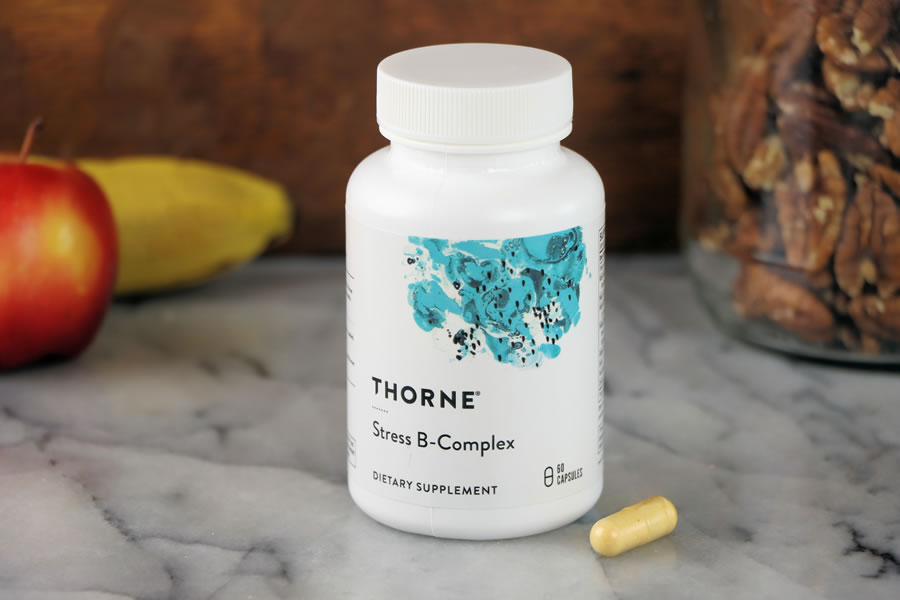
 16. Take B-Complex to Reduce Stress and Boost Mood
16. Take B-Complex to Reduce Stress and Boost Mood
B vitamins, which our body can’t store with the exception of vitamin B12, not only reduce stress and fatigue but can also boost mood and energy while promoting a healthy nervous system. Taking a B-complex can even be an effective stress reliever that can help reduce symptoms of depression and anxiety, even if you aren’t necessarily deficient. One study with young adults showed that taking a multivitamin with high levels of B-complex vitamins reduced stress and mental fatigue within 90 days.
Taking a daily B complex supplement that includes all the B vitamins is an effective way to make sure you’re getting what you need, especially during times of stress. We love this balanced Stress B-Complex from Thorne. What’s unique about this high-quality formula is that it has 250 mg of B5 (pantothenic acid), AKA “the stress reliever vitamin,” which is important for fat metabolism as well as synthesis of adrenal hormones which help our bodies deal with the effects of stress. B5 also helps to regulate cortisol levels in the bloodstream and high levels of stress can cause the body to use B5 faster than it would normally.
Recommended Product: Thorne Research Stress B-Complex
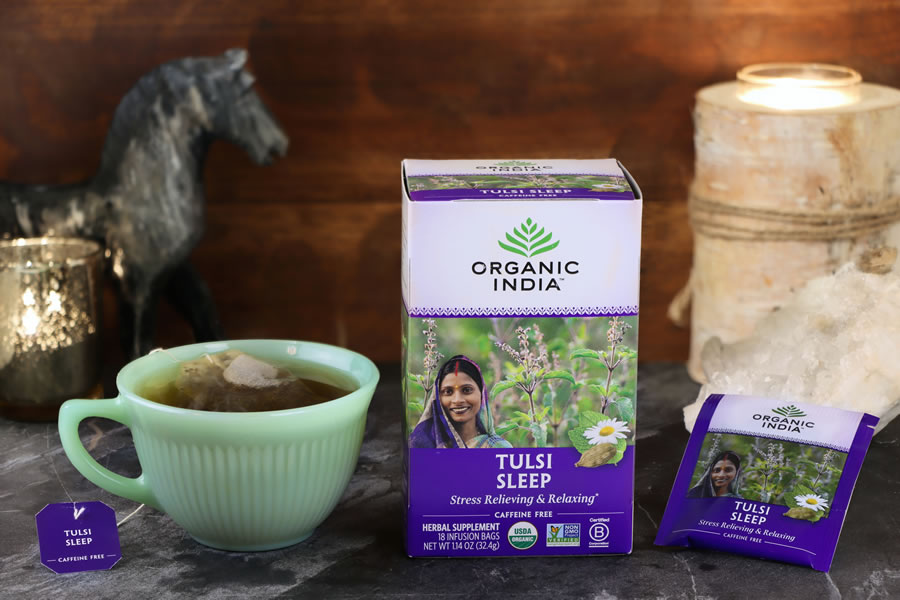
 17. Make Sleep A Priority
17. Make Sleep A Priority
Getting a good night’s rest is one of the most important ways to manage your stress levels and give your body the needed time to replenish and restore. Try to create a habit of getting into bed earlier and at the same time every night. Adults should aim for getting at least 7 hours of sleep but what’s needed can vary from person to person.
If you have trouble winding down at night, try shutting off electronics an hour before bed to give your mind a chance to relax. Eating a few healthy carbs can improve sleep, as can winding down with a cup of one of our favorite sleep induce teas, called Tulsi.
Try a cup an hour or two before bed and you might just have the best sleep of your life. We love the one linked down below from Organic India.
Recommended Product: Organic India, Tulsi Tea, Sleep, Caffeine Free, 18 Infusion Bags
18. Get Social and Contact a Friend
Reaching out to our friends and family can help ease the feelings of stress. With social distancing recommendations in effect as a way to slow the spread of the pandemic, many of us have been more isolated than ever. While regular social gatherings in person are on hold, even a simple conversation on text or over the phone can help us feel better. And with video conferencing apps like Zoom and Google Duo more in use than ever, there’s no reason not to schedule a date with your long lost BFF to catch up and share some memories. Talking through your troubles with a friend or family member can also help ease feelings of stress.
 19. Lemon Balm Can Relieve Stress Too
19. Lemon Balm Can Relieve Stress Too
A perennial herb with a fragrant lemony scent and flavor from the mint family, Lemon Balm (Melissa officinalis L.) also known as melissa and balm mint, has been used since the Middle Ages for its ability to calm, reduce anxiety, promote relaxation and even sharpen memory. [11]
With a mild sedative quality and the ability to calm the nervous system, lemon balm has proven in studies to be an effective stress and anxiety reducer in adults suffering from mental stress. [12,13] Plus, it can be effective after only a single dose, where other medicinal herbs can require weeks to experience their full benefits.
To try Lemon Balm for stress relief, you can find it in a variety of forms including teas or convenient capsules.
Recommended Product: California Gold Nutrition, Lemon Balm Extract, European Quality, 500 mg, 180 Veggie Caps

 20. Get More Omega-3 Fatty Acids (EPA and DHA)
20. Get More Omega-3 Fatty Acids (EPA and DHA)
Eating fish a few times a week might not only be good for your health, but there’s evidence that it may also help with stress. Fatty fish like salmon, mackerel and sardines are rich sources of omega-3 fatty acids like EPA and DHA. Not only are these omega-3 fatty acids anti-inflammatory, but they can also help reduce the risk of heart disease, help balance hormones, and may also help ease symptoms of stress and anxiety. One study in particular found that stress was significantly reduced after 6 weeks of supplementation with docosahexaenoic acid (DHA). [14]
Our bodies can’t produce omega-3’s on their own so if eating fish is not your thing, it may be a good idea to supplement with omega-3 rich fish oil supplement. Keep in mind that plant based sources of omega-3’s, like flax and chia seeds provide only ALA type of omega 3 fatty acid and are not an efficient substitute for marine sources of EPA and DHA like those in fish or fish oil.
Recommended Product: California Gold Nutrition, Omega-3, Premium Fish Oil, 240 Fish Gelatin Softgels
21. Put the Break on Stress With GABA
Produced naturally in the brain, GABA (Gamma-aminobutyric acid), is an amino acid and inhibitory neurotransmitter that acts like the set of brakes on stress in the brain. Taking GABA has been proven in studies to promote relaxation, more restful sleep, as well improved immunity which can suffer during times of stress. [15, 16] One study found that the beneficial stress-relieving effects of supplementing with GABA can be experienced within an hour of taking.
GABA can’t be obtained from the diet, but it is believed certain foods can increase the body’s ability to make GABA. Research is still gathering evidence of which foods may offer the best to boost GABA, but for now, a supplement might be your best bet to see if the stress relieving benefits works for you.
Recommended Product: Now Foods, GABA, 500 mg, 100 Veg Capsules
 22. L-Theanine
22. L-Theanine
L-theanine, another stress-relieving amino acid found almost exclusively in green and black tea and has been shown in studies as an effective way to promote relaxation, while easing stress as well as increasing focus and improving memory. Researchers have discovered that L-theanine works by triggering the release of stress-relieving brain neurotransmitters like GABA, while increasing the activity of alpha waves in the brain which relax the mind without causing drowsiness. People who take it along with their coffee, report a greater feeling of focused calm energy. To get the stress relieving benefits of L-Theanine, try this 100mg supplement by California Gold Nutrition which is 3 times the amount you would find in a cup of black tea.
Recommended Product: California Gold Nutrition, L-Theanine, AlphaWave, Supports Relaxation, Calm Focus, 100 mg, 30 Veggie Capsules
23. Keep Stress Away by Staying Hydrated
If you’re not drinking enough water throughout the day your body can start to feel stressed and begin to release cortisol. Symptoms like increased heart rate, nausea, fatigue, headache can be indicative of both dehydration and stress so it’s best to just drink up to give your body the fluids it needs. As a guide try to drink 50% of your body weight in ounces per day. So if you weigh 150 pounds, aim for 15 ounces of water. Carrying a water bottle like this one with you can help you keep track of what you’re drinking while reducing the use of plastic bottles.

 24. Try Journaling
24. Try Journaling
A powerful mindfulness exercise that is scientifically proven to help relieve stress and reduce anxiety, journaling is a wonderful way to release emotions, track goals, or simply clear your mind.[17] It can also help you pinpoint specific areas of life that may be causing you stress. Start by journaling for 5 to 10 minutes each morning right after you wake or just before you go to bed (but any time of day will work) with “stream of consciousness” journaling where you write down whatever enters your mind and let it flow onto the page. If you feel stuck, write about all the things you are grateful for or have a list of journaling prompts handy to choose from (Pinterest is a great resource). Whether you journal by itself or use it as a supplement to meditation, writing down your innermost thoughts on a page can be extremely cathartic.
25. Plan a Trip
Whether it’s the change in scenery, the excitement of new experiences, or simply taking the time to clear your mind while stepping away from the stress and responsibilities at home, taking a vacation can be a great way to boost your mood and relax. Taking a vacation can also help us avoid burnout from work and be more productive.
As we’re in the middle of a pandemic, many of us have put travel on the backburner. But some evidence is showing the act of planning your next adventure, which can give you something to look forward to, can give you a lot of happiness and provide stress relief and well-being. [18].
Did you know iHerb carries over 30,000 natural products? They also..
-
- Ship to over 180 countries!
- Quickly ships orders from climate-controlled distribution centers to maintain the quality of their products
- Are a Google Trusted Store and their customer service team provides support 24/7 in 10 different languages!
- Have great prices
- Let you earn rewards!
<<?Get a Special iHerb Offer!>>
Get a discount OFF your iHerb order (no minimum purchase) by –> clicking here.






